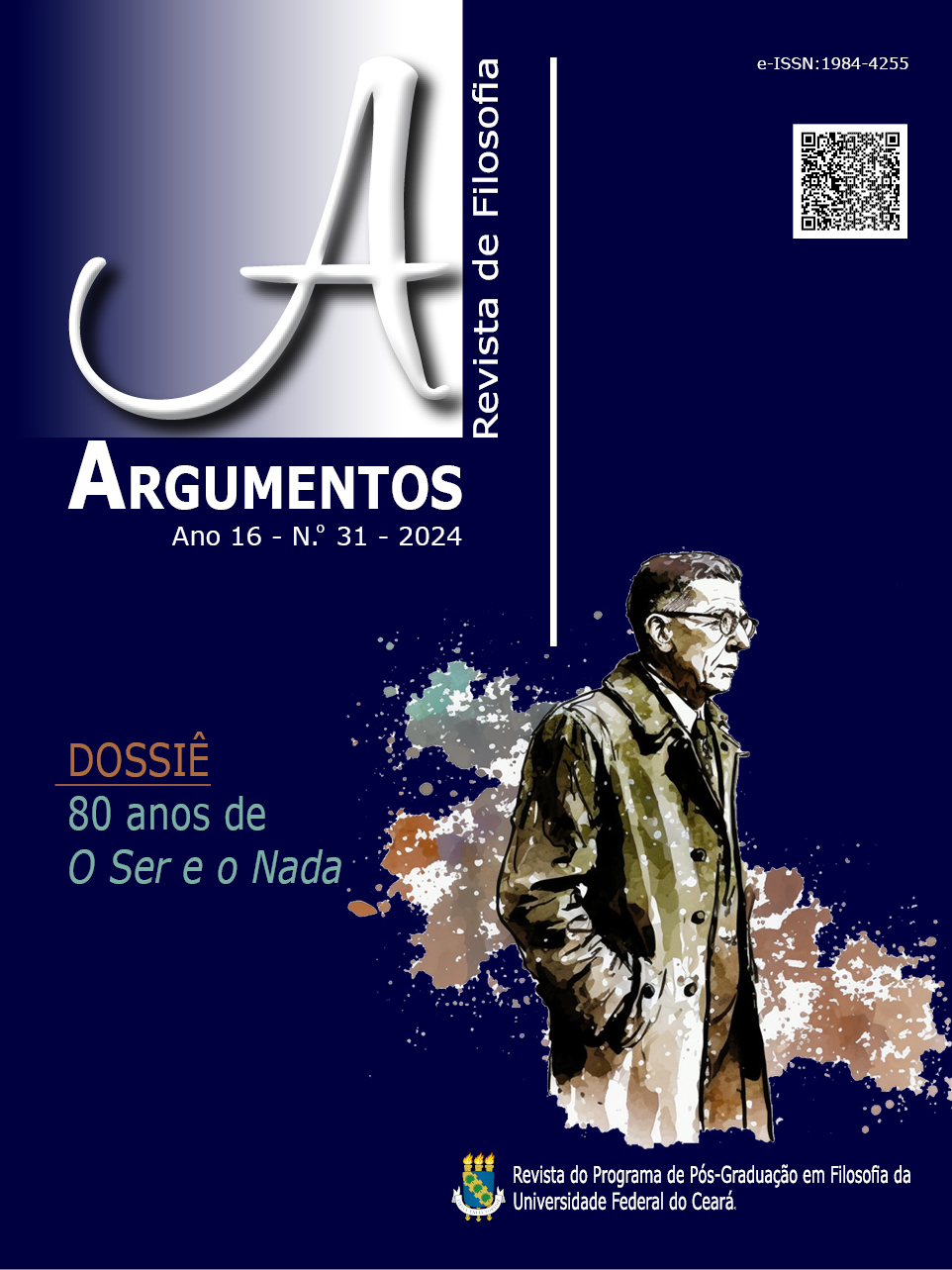The bureaucrat murderer (desk murderer) and the subaltern man: reflections from the essay “Auschwitz on trial”
DOI:
https://doi.org/10.36517/Argumentos.31.12Keywords:
Bureaucracy. Hannah Arendt. Bureaucratic murderer. Subaltern Man. Bernd Naumann. Auschwitz.Abstract
Arendt’s reflections on the reverberations of the bureaucratic way of governing give rise to two distinct and, above all, complementary argumentative trajectories: 1) its investigation as a form of domination originating from imperialism and later used as a model of totalitarian; 2) the role of bureaucrats. Both help to understand why the bureaucracy not only survived the fall of totalitarian regimes, but also remained the organizational model of nations. At the intersection of these readings, the essay “Auschwitz on Trial” presents two types of participants in the Nazi bureaucratic apparatus: bureaucratic assassins (desk murderes) and subordinate men. In common among them was a lack of responsibility for the crimes perpetrated by the regime and thoughtlessness; however, their degree of participation in the hierarchy and their punishability in post-war trials differed greatly. In these terms, this article aims to analyze the similarities and differences between subordinate men and bureaucratic murderers. To do so, it is assumed that understanding them helps to understand bureaucracy as a form of government that makes public freedom and the free exercise of spiritual activities unfeasible.
References
ARENDT, H. Eichmann em Jerusalém. Um relato sobre a banalidade do mal. Tradução de José Rubens Siqueira. São Paulo: Companhia das Letras, 2017.
ARENDT, H. Entre o passado e o futuro. Tradução de Mauro W. Barbosa. São Paulo: Perspectivas, 2016.
ARENDT, H. Origens do totalitarismo. Anti-semitismo, Imperialismo, Totalitarismo. Tradução de Roberto Raposo. São Paulo: Companhia das Letras, 2011.
ARENDT, H. Pensar sem corrimão. Compreender 1953-1975. Tradução de Beatriz Andreiuolo et. al. Rio de Janeiro: Bazar do Tempo, 2021.
ARENDT, H. Responsabilidade e julgamento. Tradução Rosaura Eichenberg. São Paulo: Companhia das Letras, 2004.
BROWNING, C. R. Ordinary men. Reserve Police Battalion 101 and the Final Solution in Poland. London: Penguin Books, 2001.
CESARANI, D. Becoming Eichmann. Rethinking the life, crimes and trial of a Desk Murderer. Boston: Da Capo Press, 2004.
LEVI, P. Os afogados e os sobreviventes. Os delitos, os castigos, as penas, as impunidades. Tradução de Luiz Sergio Henriques. 2. ed. Rio de Janeiro: Paz e Terra, 2004.
MERLE, R. A morte é meu ofício. Tradução de Arnaldo Bloch. São Paulo: Vestígio, 2022.
NAUMANN, B. Auschwitz. A report on the proceedings against Robert Karl Mulka and others before the court at Frankfurt by Bernd Naumann. Introduction by Hannah Arendt. London: The Pall Mall Press Limited, 1966.
ROCHA, L. Burocracia. In: AGUIAR, O. A.; CORREIA, A.; MÜLLER, M. C.; VARELA, G. (Orgs.). Dicionário Arendt. São Paulo: Edições 70, 2022.
ROUSSET, D. O universo concentracionário. Tradução de Tiago Proença. Lisboa: Antígona, 2016.
WITTMANN, R. E. Holocaust on trial? The Frankfurt Auschwitz trial 1963-1965 in historical perspective. 2001. Thesis (Doctoral in Philosophy) – University of Toronto, 2001.
Downloads
Published
Issue
Section
License
Argumentos magazine is licensed under an International Creative Commons Attribution License.
The Magazine uses CC BY inclusion
1) The authors retain the copyright granted to the magazine or the right to initial publication, with the work regularly licensed under the Creative Commons Attribution, which allows the sharing of the work with acknowledgment of authorship and initial publication in this magazine.
2) The authors are authorized to contract additional applicable contracts, for non-exclusive distribution of the version of the work published in this journal (for example, publication in the institutional repository or as a chapter of the book), recognition of authorship and initial publication in this journal.
3) Authors are authorized and encourage to publish and distribute their work online (for example, in institutional repositories or on their personal pages) at any time before or during the editorial process, as they can generate productive changes, as well as increase the impact and reference of published work.




.jpg)










._._3.png)
1.jpg)
._._._.png)
